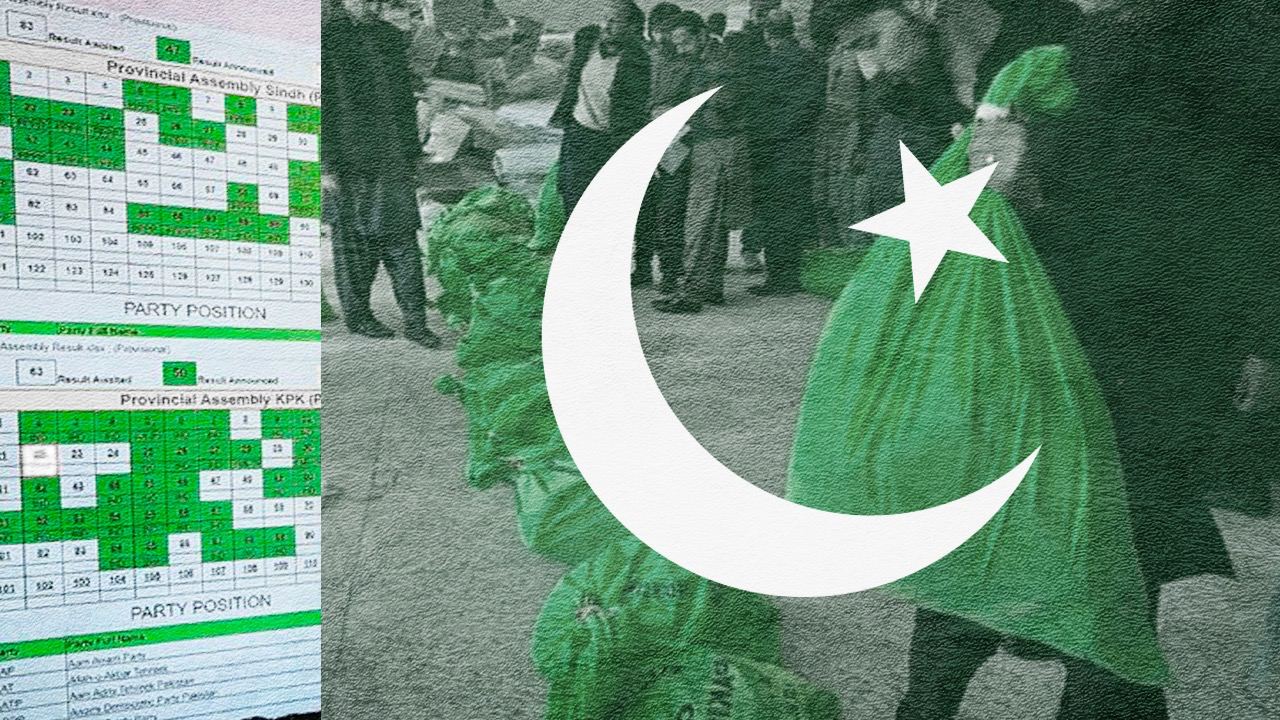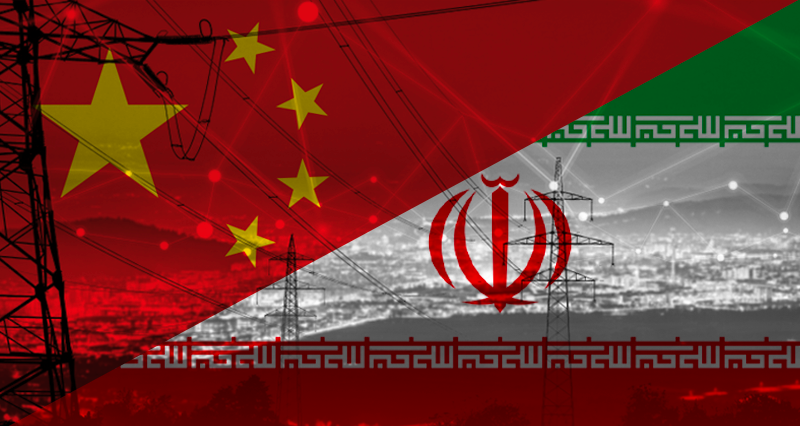By Dure Akram – Lahore, Pakistan
10 days is too long of a time for any parliamentary democracy to decide who deserves to be given the baton next. Haunted by a long-drawn-out delay, the 12th general polls in Pakistan held on February 8 were supposed to bring about at least a semblance of stability. Although brought on by a unique show of parliamentary supremacy, the ouster of the last elected government under Pakistan Tehreek-e-Insaf’s (PTI) Imran Khan had occurred nearly two years ago, and the 240-million-strong country appeared increasingly desperate for an end to stopgap arrangements so that life could actually get back to normal.
Nevertheless, sometimes, one needs to be careful in what one may wish for. The political landscape of Pakistan is no stranger to controversies, but never ever in history has it witnessed such an extraordinary scenario. Struggling from a crisis of representation and forced to fight a zillion-and-one legal battles, there was no way, a pushed-to-the-fringes Mr Khan could be expected to give in such a tremendous fight. The 70-year-old former international cricketing icon could not secure himself any relief from a verdict that had declared him ineligible to contest elections for the next five years on charges of unlawfully selling gifts received as head of the state. Stripped of its iconic electoral symbol “bat,” the charisma of top-tier leadership and the breathing space to campaign sans any fear of high-handed persecution, his party not only persevered but managed to deliver one of the greatest electoral upsets in Pakistan’s history. Tech-savvy supporters jumped to the cause with a long list of eureka solutions, ranging from virtual rallies, guerilla tactics, and social media posters to “spaces” corner meetings.
Call it a twist of fate or a sweeping wave of anger, but many voters across the length and breadth of the country were galvanized by emotional visuals of crackdowns on party leaders to concoct an unheard plan. They spent their entire election campaign availing free “biryanis (rice)” and ballot papers to vote for candidates who had fallen out of grace. For the first time in the nation’s history, a party-based election saw the largest number of independents clinching victory. As of now, the independents are not in a position to successfully lay claims on the prime ministerial slot but cannot be dismissed as a non-affair either. Pakistan’s mainstream political parties, namely Pakistan Muslim League (Nawaz) and Pakistan Peoples’ Party are trying all that they can to ensure maximum deflection to further their cause, but they too know that the public has spoken, and its mandate does not lie with them, this time.
If the certainty threatening to engulf everything only pertained to the question of who would wear the coveted black sherwani and make a dash for the steering wheel, the entire hullaballoo might not have raised many an eyebrow. After all, elections in Pakistan have almost always been controversial. But as every single political party is up in arms, protesting about some unknown hands robbing its popular vote, the power struggles have metamorphosed into something way more perilous. Most of the complaints center around the alleged discrepancies between center around discrepancies between the initial vote counts conveyed by the presiding officers soon after polling concluded and the tallied counts on the consolidated polling station results that magically began trickling down after an overwhelming 72 hours. This stark contrast was also repeatedly reported by numerous international journalists who had landed in Islamabad, Karachi and Lahore to observe the overall fairness and report on the proceedings of the polling process. Most of the stories published on February 8 talked of overall orderly voting, except for late arrivals of the electioneering staff and a few isolated reports of assaults. Because the caretaker administration had cited the unprecedented resurgence in terrorism activities, which struck election offices, tearing through different cities on extreme ends, many among the people even seemed reluctantly convinced by the move to suspend telecommunication networks. As many as 51 terrorist attacks were said to have claimed 12 lives in all parts of the country on the polling day itself, according to a statement by the army. However, all hell broke loose in the face of the delay in result announcements. Publication after publication began to question the fairness, freeness and accountability of an expensive exercise where a delay in announcing results could easily be seen as a deliberate ploy to manipulate the results.
Today, the PML(N) and its supreme leader, Nawaz Sharif, have realized the fallacy in making an early victory speech and are dropping hints of age-old tactics to undermine its popularity. PPP believes its leader, Bilawal Bhutto-Zardari, was not allowed to mark his promising return to the heartland of Punjab where he had dared to make inroads in the constituency chosen by his mother Benazir Bhutto and grandfather Zulfiqar Ali Bhutto. A political alliance based in Sindh is creating headlines for staging an unprecedented demonstration, dropping hints of an impending martial law. Close by in Balochistan, protests have been going on for nearly a week, with a wide array of regional parties joining hands to suspend communication networks in their denunciation of electoral rigging. Most interesting of these protests has been the call issued by PTI who also seems dissatisfied with the results. While crackdowns have largely been the line of action until now, the state would have to realize the error in its ways sooner or later. Simply choosing to close their eyes to the upheavals brewing right under their nose or worse, clenching fists tighter and tighter cannot lead to normalcy, according to political analysts.
On Saturday, a high-ranked member of the bureaucracy in Rawalpindi, a city where military headquarters are situated, added to the frenzy with bombastic revelations about deliberate tampering of the results to ensure victories for candidates nominated by three-time former prime minister Nawaz Sharif. Pressure from the international community continues as numerous lawmakers, specifically from Washington, post messages on social media platforms against an “onslaught” on the mandate of the masses. Their posturing indicates a clear inclination towards Mr Khan, which is triggering an intense line of argument centered around his party’s recent hiring of an American lobbying firm to alter its perception in the West.
Way Forward
As per the constitution of the country, President Arif Alvi is bound to call in a session of the national assembly no later than February 29, 2024, so that the country can proceed with the actual task of governance. However, in a setup mired with a long list of controversies and no side ready to accept the position gained by others, it is becoming increasingly unclear who would get to sit on the treasury benches. Quite evident from the slew of petitions, not many seem interested in moving on, as has been suggested by the caretaker prime minister Anwaarul Haq Kakar. PML(N)’s mouthpieces have hopped aboard social media to proclaim they are ready to sit on the opposition benches. An earlier huddle of mainstream political parties saw a general willingness to enter the parliament to move towards the formation of a government, but their political rival and estranged ally, PPP, is not in a mood to assume any cabinet positions.
The latest of such announcements have come from PTI, which, to many’s surprise, is also not ready to play musical chairs. While all of these parties wish to concentrate on the mandate received in respective provinces (PMLN in Punjab, PPP in Sindh and as a part of a coalition in Balochistan and PTI in Khyber Pakhtunkhwa), the likelihood of the chaos settling any time soon is becoming fainter by the minute. Of course, the immediate neighborhood and the rest of Asia cannot remain aloof from the staging of the show. Every passing day brings forth some sensational headlines in Indian publications or the call for immediate attention from the West. As the country’s stability languishes at the edge of a cliff, there’s no need to explain to anyone how only a government formed by a trustworthy, reliable mandate can find the way out of the quagmire.

















Leave a Reply